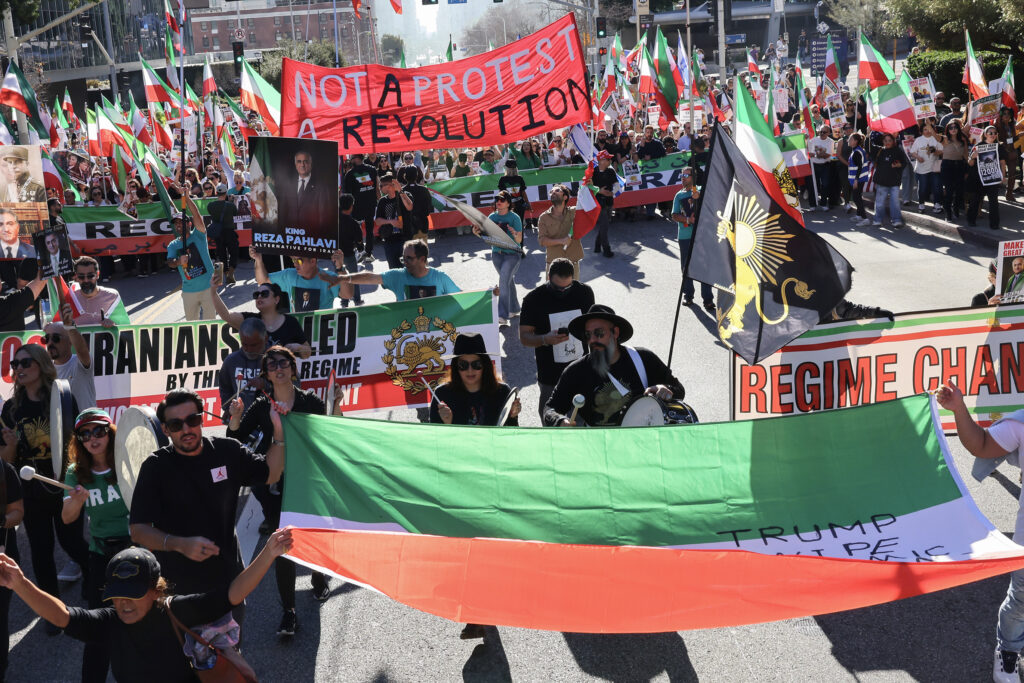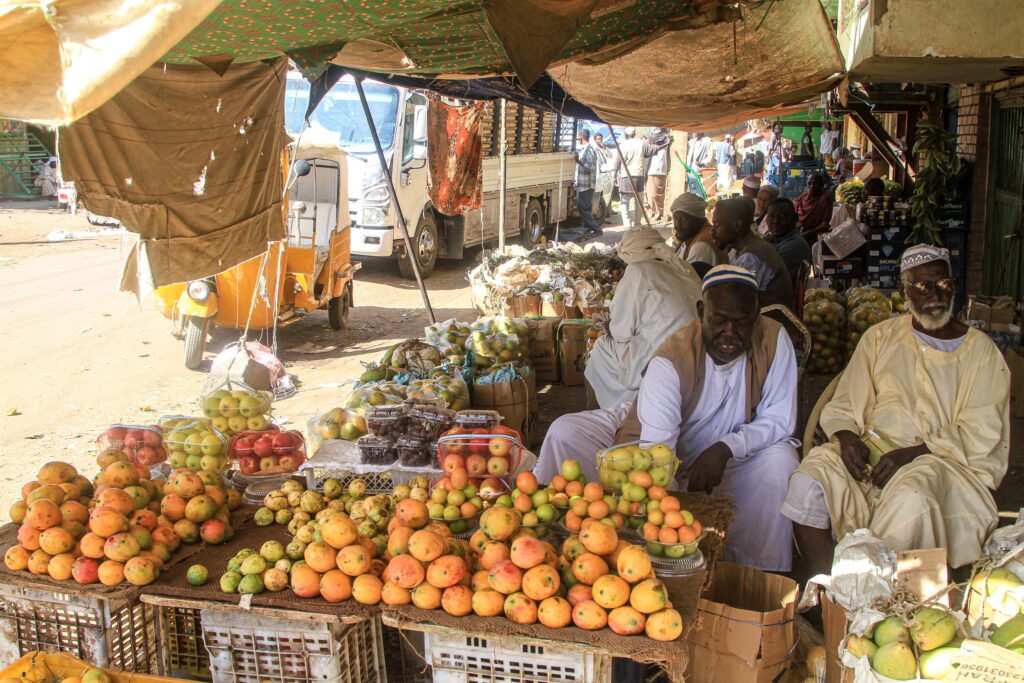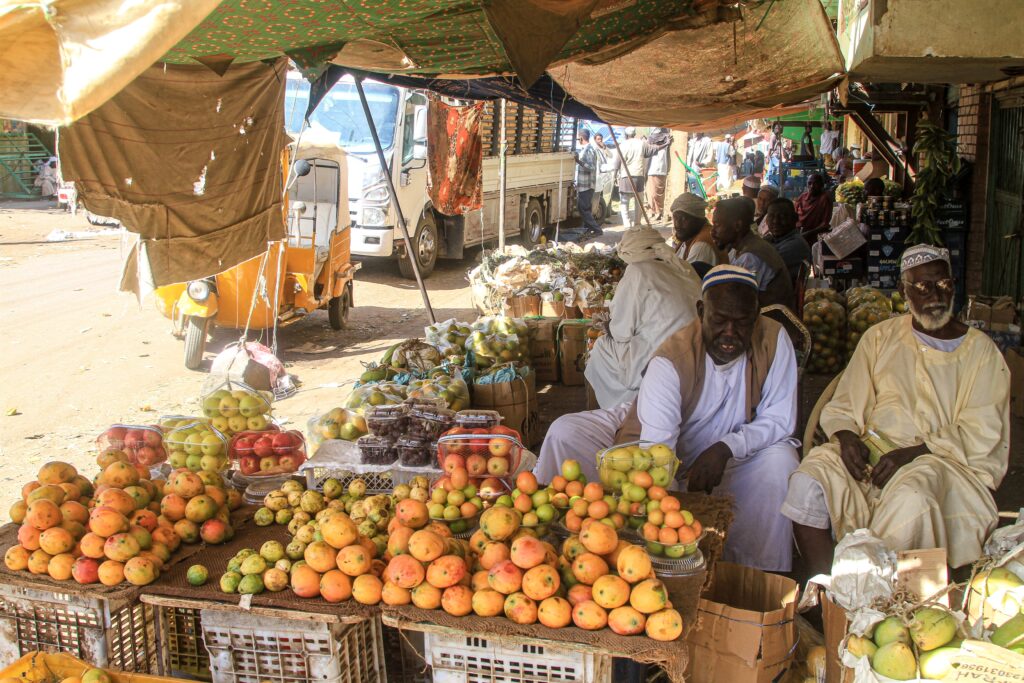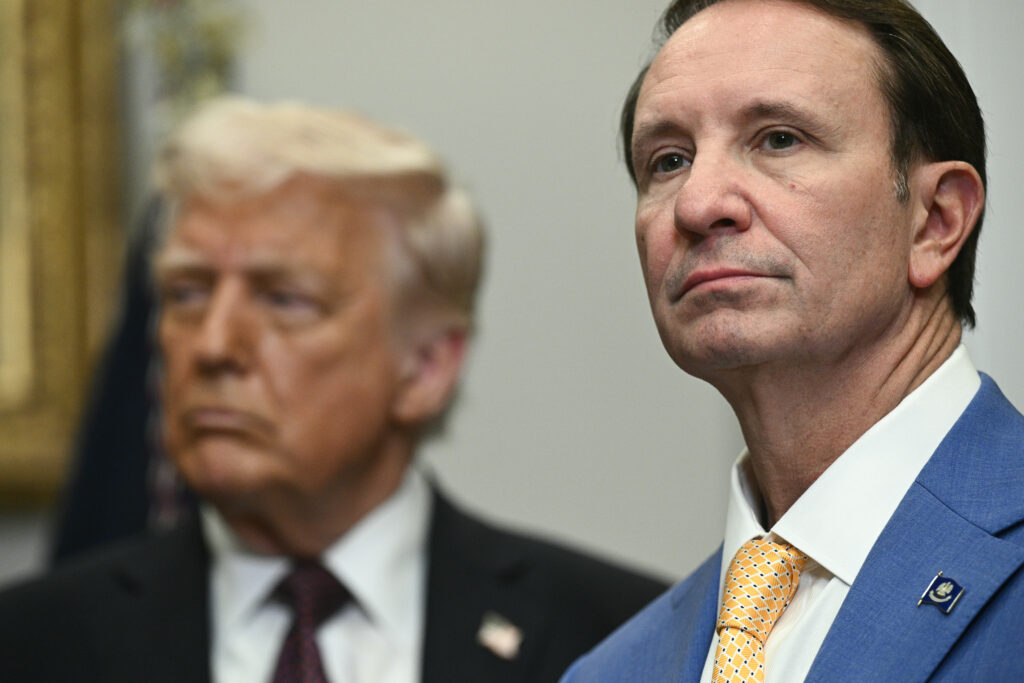Infantino condemns Senegal for ‘unacceptable scenes’ in AFCON finalMon, 19 Jan 2026 10:00:52 GMT
FIFA president Gianni Infantino condemned “some Senegal players” for the “unacceptable scenes” which overshadowed their victory in Sunday’s Africa Cup of Nations final when they walked off the pitch in protest at a penalty awarded to Morocco.African football’s showpiece event was marred by most of the Senegalese players leaving the pitch when, deep into injury …
Espagne: le bilan de 39 morts dans la collision entre deux trains pourrait encore grimper
La collision entre deux trains à grande vitesse dimanche soir, dont l’un a déraillé, dans le sud de l’Espagne a fait au moins 39 morts mais le bilan n’est “pas définitif”, ont prévenu lundi les autorités, évoquant un accident “extrêmement étrange”.- Un bilan en hausse -Le bilan du drame survenu en Andalousie a grimpé en flèche au cours de la nuit, s’établissant selon une porte-parole du ministère de l’Intérieur à 39 morts lundi matin. Le précédent bilan était de 21 morts.Le ministre des Transports Oscar Puente a en outre averti sur X que “le nombre de décès (n’était) pas définitif”.La catastrophe a également fait 123 blessés, dont cinq dans un état très grave, et 24 dans un état grave, selon la porte-parole du ministère de l’Intérieur. Tous les blessés avaient été évacués dans la nuit de dimanche à lundi, selon Oscar Puente. L’unité d’urgence de l’armée (UME) a été déployée sur le terrain pour venir en aide aux secours, et un hôpital de campagne a été dressé non loin de l’accident.Le lieu de l’accident est difficile d’accès, a expliqué Iñigo Vila, responsable de la Croix-Rouge, sur la télévision nationale TVE: “On ne peut y arriver que par un chemin de service, un chemin de terre par lequel passaient tous les services de secours. Avec les premières lueurs du jour, nous aurons une meilleure vision de ce qui s’est passé exactement et de l’ampleur de l’accident”.- Que s’est-il passé ? -La collision a eu lieu à 19H45 (18H45 GMT) près d’Adamuz, à environ 200 km au nord de Malaga, entre un train Iryo (un opérateur de transport ferroviaire privé) à destination de Madrid, qui a déraillé et s’est déporté sur la voie parallèle, heurtant un autre train de la Renfe, la compagnie nationale espagnole, circulant dans l’autre sens et en direction, lui, de Huelva (sud).Les deux derniers wagons du train Iryo ont déraillé et percuté les deux premiers wagons de l’autre train, projettant ceux-ci “hors des rails”, tant la violence du choc était forte, selon Oscar Puente.Selon Iryo, la rame avait à son bord près de 300 voyageurs et sa dernière révision avait eu lieu jeudi dernier.”On se serait cru dans un film d’horreur”, a raconté un passager, Lucas Meriako, qui se trouvait à bord du train Iryo, à la chaîne La Sexta. “Il y a eu un choc très violent à l’arrière et l’impression que tout le train allait se disloquer (…) De nombreuses personnes ont été blessées par des éclats de verre”, a-t-il dit.Des images récupérées par l’AFP montrent deux wagons avec des rayures rouges et bleu marine, totalement sortis des rails et inclinés, et des personnes s’affairant sur le sol terreux à côté de la voie. Une autre photo transmise par Iryo montre un train complètement couché sur le flanc au milieu de la voie.- Des causes encore inconnues -Le ministre des Transports a évoqué un accident “extrêmement étrange”.”Comment est-il possible que sur une ligne droite, sur un tronçon de voie rénové, avec un train quasiment neuf, un événement de cette nature puisse se produire ?”, s’est interrogé dans la nuit Oscar Puente. “Tous les experts en matière ferroviaire (…) sont très surpris par cet accident”, a-t-il ajouté.”L’erreur humaine est pratiquement écartée”, a aussi assuré le président de la Renfe sur la radio publique RNE, Álvaro Fernández Heredia, parlant lui aussi de “circonstances étranges”.Une commission chargée d’enquêter sur les accidents est déjà sur place en train de recueillir des preuves, a-t-il précisé.- L’Espagne sous le choc -Le Premier ministre espagnol Pedro Sánchez a annulé tous ses rendez-vous lundi pour se rendre sur place, a annoncé son cabinet.De son côté, la famille royale espagnole a fait part dans un communiqué de sa “grande inquiétude” à la suite de ce “grave accident”.Le trafic de trains à grande vitesse entre Madrid et Cordoue, Séville, Malaga et Huelva est interrompu “au moins toute la journée” lundi, selon le gestionnaire du réseau ferroviaire espagnol (Adif).D’autres responsables européens comme le président français Emmanuel Macron qui a évoqué “une tragédie”, ou le chancelier allemand Friedrich Merz qui s’est dit “bouleversé”.En juillet 2013, l’Espagne avait déjà été meurtrie par un déraillement de train peu avant son arrivée à Saint-Jacques-de-Compostelle (nord-ouest), tuant 80 personnes. L’accident en Andalousie est pour l’heure le sixième accident de train le plus meurtrier sur le continent européen au 21e siècle, le dernier en date ayant tué 57 personnes en 2023 en Grèce.
Les Iraniens des Etats-Unis, mortifiés par la répression sanglante de Téhéran
Munis de pancartes dénonçant un “nouvel Holocauste”, un “génocide en cours” ou la “terreur” imposée par Téhéran, les Iraniens des Etats-Unis ont largement manifesté dimanche, pour protester contre la répression meurtrière de la République islamique face à la contestation dans leur pays d’origine.Quelques milliers de personnes sont descendus dans la rue à Los Angeles, qui compte la plus importante diaspora iranienne du monde, et plusieurs centaines de manifestants se sont rassemblés à New York, ont constaté des journalistes de l’AFP.”Mon cœur est lourd et mon âme est brisée, les mots me manquent pour exprimer à quel point je suis en colère”, lâche Perry Faraz dans la manifestation en Californie.Cette gestionnaire de paie de 62 ans, qui a fui l’Iran en 2006, a appris cette semaine qu’un de ses petits cousins a été tué lors des récents rassemblements populaires dans son pays natal. “Il n’avait même pas 10 ans, c’est horrible”, pleure-t-elle.Lancé le 28 décembre par des commerçants pour protester contre l’inflation galopante en Iran, le mouvement a été réprimé dans le sang par les mollahs au pouvoir, qui ont coupé l’accès à internet. Les autorités iraniennes évoquent elles-mêmes des “milliers de personnes tuées”, et beaucoup d’ONG craignent une véritable hécatombe. Les bilans tenus par différentes organisations d’opposition oscillent entre 3.000 et 20.000 morts.- Appels à Donald Trump -“Ce massacre massif de la population est absolument bouleversant”, dénonce Ali Parvaneh.Comme de nombreux manifestants, l’avocat porte une pancarte “Make Iran Great Again” et souhaite que le président américain Donald Trump intervienne.”La localisation des centres des Gardiens de la révolution est bien connue”, estime cet Irano-Américain de 65 ans, qui faisait ses études aux Etats-Unis lors de la révolution de 1979 et n’est jamais rentré dans son pays.”Trump pourrait frapper ces sites à six heures du matin et se débarrasser d’eux”, ajoute-t-il.Dans la foule, certains vont jusqu’à souhaiter un assassinat ciblé du guide suprême Ali Khamenei, au pouvoir depuis plus de 25 ans en Iran. Après avoir ordonné des frappes sur des sites nucléaires en juin dernier, Donald Trump a envoyé des signaux contradictoires cette semaine. Le milliardaire républicain a d’abord menacé d’intervenir si des manifestants iraniens étaient tués, avant d’afficher sa satisfaction en assurant que Téhéran renoncerait à exécuter les protestataires qui doivent être jugés.”J’espère vraiment que Trump fera plus qu’exprimer son soutien”, reprend M. Parvaneh.Comme la foule, il scande des slogans en faveur du président américain et de Reza Pahlavi, le fils de l’ex-chah d’Iran – qui a modernisé le pays dans les années 60 et 70.- Nostalgie du chah -“Si la monarchie était en place aujourd’hui, elle serait très différente et l’Iran serait dans une bien meilleure situation”, juge-t-il, en souhaitant la création d’une “république laïque” supervisée par un roi, comme au Royaume-Uni.Exilé près de Washington, M. Pahlavi s’est dit cette semaine prêt à retourner en Iran pour y mener une transition démocratique. Mais l’opposition iranienne reste divisée, car le souvenir de la répression menée par son père envers ses opposants de gauche reste vivace.La semaine dernière, un homme a fait quelques blessés légers en précipitant un camion dans une manifestation d’Iraniens à Los Angeles, affublé d’une pancarte qui ne souhaitait “ni chah, (…) ni mollah”.Dans le quartier de Westwood, surnommé “Tehrangeles”, Roozbeh Farahanipour estime que la diaspora doit soutenir les Iraniens sans empiéter sur “leur droit à décider de leur propre futur”.”Ils n’ont pas besoin d’une marionnette implantée par l’Occident”, insiste ce restaurateur.Des réserves partagées ailleurs en Californie.”Trump manipule le peuple iranien”, regrette la poétesse Karim Farsis, habitante de la baie de San Francisco.L’universitaire n’oublie pas que le président américain a instauré des sanctions contribuant à leur souffrance économique, après s’être retiré des négociations sur le programme nucléaire de Téhéran.Elle dénonce aussi l’interdiction d’entrée quasi totale visant les Iraniens depuis juin.”Nous vivons une période complètement tordue”, dénonce-t-elle. “Trump dit aux manifestants: +protestez, prenez le contrôle de vos institutions+. Mais s’ils se retrouvent en danger, ils ne peuvent même pas se réfugier aux Etats-Unis.”
Dans un Soudan en guerre, le marché central de Khartoum reprend vie
Au marché central de la capitale soudanaise Khartoum, les marchands et clients ont commencé à revenir mais “ce n’est pas comme avant”, selon Hashim Mohamed, un vendeur de fruits installé à un coin de rue.C’est à proximité de ce grand marché alimentaire que les premiers combats ont opposé en avril 2023, les forces armées et les paramilitaires des Forces de soutien rapide (FSR).Auparavant alliés pour reprendre le pouvoir à un éphémère gouvernement de transition, après des décennies de dictature, les deux camps se livrent désormais une lutte acharnée pour le pouvoir.La guerre a fait des dizaines de milliers de morts et des millions de déplacés. Dans l’agglomération de Khartoum, près de quatre des neuf millions d’habitants ont fui quand les FSR ont pris la ville.Hashim Mohamed, lui, n’est pas parti. “J’ai continué de travailler discrètement parce qu’il y avait des attaques” sur les commerces, dit le vendeur qui travaille depuis 50 ans sur ce marché. Comme lui, beaucoup évoquent la peur face aux miliciens armés, les pillages, les vols, les destructions.L’armée a repris la capitale au printemps 2025, après deux ans de combats meurtriers qui ont laissé décombres et destructions. Plus d’un million de personnes sont revenues depuis et le Premier ministre du gouvernement allié à l’armée a récemment annoncé le retour de l’administration repliée depuis deux ans à Port-Soudan, à 700 km à l’est, sur la mer Rouge.- “Un autre travail” -“Le marché n’est pas ce qu’il était mais c’est bien mieux que quand les FSR avaient le contrôle”, déclare Adam Haddad, un marchand qui se repose à l’ombre d’un auvent.Dans les ruelles étroites et poussiéreuses, les fruits et légumes s’entassent sur des étals précaires ou sur des bâches déployées sur le sol.Khartoum, où des quartiers entiers ont été endommagés par les affrontements, n’est plus menacée par la malnutrition ou la famine, qui frappent les zones de combats, les camps de déplacés et les régions isolées ailleurs au Soudan.Mais avec une économie en ruine, le quotidien reste difficile.”Les gens se plaignent des prix, ils disent que c’est trop cher, on trouve de tout mais tout augmente: les fournitures, la main d’œuvre, le transport”, détaille Hashim Mohamed.L’inflation s’est élevée à 151% en 2024 sur un an après un pic en 2021 (+358%), la monnaie s’est effondrée face au billet vert (570 livres soudanaises pour un dollar avant la guerre, 3500 début 2026, selon le cours du marché noir).Un enseignant, qui vivait bien il y a quelques années, explique ne plus pouvoir couvrir son loyer avec son salaire mensuel de 250.000 livres (71 dollars ou 61 euros). Pour nourrir sa famille, payer l’école, les frais de santé, ce père de deux enfants “travaille sur le marché ou n’importe où ailleurs” pendant ses jours de congés. “Il est indispensable d’exercer un autre travail afin de pouvoir couvrir le strict minimum des besoins vitaux”, confie-t-il sous couvert d’anonymat de peur de “problèmes avec les services de sécurité”.Pour Adam Haddad, les soucis sont tout aussi nombreux. “Nous manquons de ressources, de main-d’œuvre et de liquidités entrant sur le marché”, dit-il. Selon lui, “ce qui manque maintenant, c’est l’électricité: “le gouvernement s’efforce de tout rétablir, et si Dieu le veut, dans un futur proche, l’énergie reviendra et Khartoum redeviendra ce qu’elle était”.
Khartoum markets back to life but ‘nothing like before’Mon, 19 Jan 2026 09:35:39 GMT
The hustle and bustle of buyers and sellers has returned to Khartoum’s central market, but “it’s nothing like before,” fruit vendor Hashim Mohamed told AFP, streets away from where war first broke out nearly three years ago.On April 15, 2023, central Khartoum awoke to battles between the Sudanese army and the paramilitary Rapid Support Forces, …
Khartoum markets back to life but ‘nothing like before’Mon, 19 Jan 2026 09:35:39 GMT Read More »
Trump envoy disinvited from Greenland dog race
Greenland’s dogsled federation said Monday that the new US special envoy to the Arctic island had been disinvited to its annual race, as Washington repeatedly threatens to take over the autonomous Danish territory.Jeff Landry had been invited to attend the race by a private Greenlandic tour operator, an invite the KNQK federation has previously called “totally inappropriate”.”KNQK has been informed that the tourism company that invited Governor Jeff Landry from the United States has unilaterally withdrawn its invitation,” it wrote on Facebook overnight Sunday to Monday. “This is reassuring,” it added. A year ago, US Vice President JD Vance’s wife Usha Vance had planned to attend the dogsled race during an uninvited visit to Greenland.Her plans were cancelled amid strong opposition in Denmark, and replaced by a visit with her husband JD Vance and a delegation to the US Pitiffuk military base in the northwest of the island.






